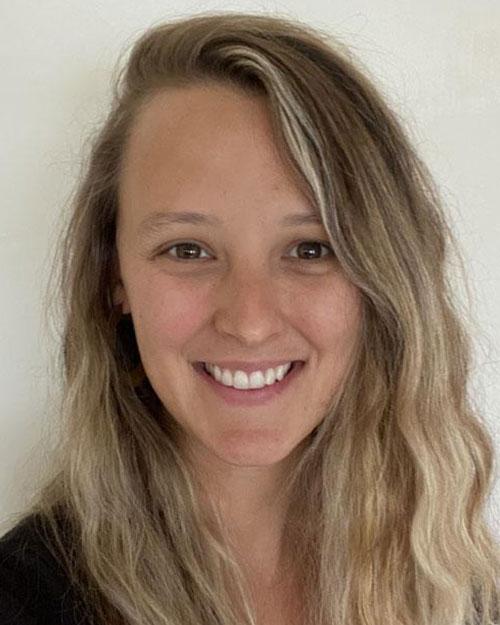Instructor Spotlight: Casey O’Reilly

Tell us about your background and what inspired you to teach this course
I am a fifth-year PhD candidate specializing in twentieth- and twenty-first century British literature. My scholarship focuses on affair narratives, novels of adultery, family abolition theory, Marxist theory, and queer theory. My dissertation explores the ways in which affair narratives deconstruct and reconfigure modern notions of love, family, marriage, and monogamy.
How do you define monogamy?
This is such a challenging question! Because I think monogamy means different things to different people. Generally, I would define monogamy similar to how the Oxford English Dictionary defines it—as the condition or custom of being married or partnered to only one person. However, I think part of the difficulty of defining monogamy is the fact that most people assume that we all think of monogamy the same. But in reality, every person has a different sense of what boundaries they attach to their conception of monogamy. Meaning, we all view faithfulness and infidelity differently. Once we begin to break those different ideas down, we realize that we actually do not all have the same definition of “monogamy.”
What is the importance of telling non-monogamous stories in the media?
It is important because they allow us to rethink the ways in which patriarchy, racism, and xenophobia impact our understanding of what constitutes a relationship or a family. Furthermore, there are many people in the world and specifically right here in Somerville that lead non/monogamous lives. Representation in the media allows them to tell their stories and to expose those that are unfamiliar with non/monogamy to a better understanding of how deeply entrenched mononormativity is in our culture and society.
As reported in The New York Times, Somerville is a sociocultural and political haven for polyamory.
What are some practices or norms here that you think should extend beyond our city’s borders?
It’s so fantastic to live in a place like Somerville that has passed laws that protect people in polyamorous relationships and specifically laws that protect their access to their children. And I think that other cities should continue to pass legislation that protects polyamorous people with children and those without children. Specifically, I think these laws should include language about anti-discrimination.
More broadly, I think part of what we see in Somerville is a kind of normalization of polyamory. I am both thrilled by and wary of this kind of normalization. I see non/monogamy as a practice that is inherently a radical challenge to the status quo. And while it will always be of the utmost importance to protect those that live non/monogamous lives (and laws help do that), I also think more legal recognition will inevitably come with a push to normalize and assimilate. Just as we have seen homonormativity take shape, polynormativity is certainly a possibility (if not already a reality). And so, I think as polyamory and non/monogamy gain more media attention and popularity, it’s important we continue to focus on who or what is not included.
What is your favorite text or piece of media that you are teaching this semester?
My favorite is the Past Lives (2023). Without spoiling the film, I think it is one of the best examples of how we can use the theory of non/monogamy to rethink how we conceptualize love. More specifically, the film asks us to reconsider how and why we categorize love as either romantic or platonic. Is there something else in between? It’s a beautiful film and I recommend it – 10/10!
What do you hope that students will take away from your course?
If my students only take away one thing from this course, my hope is that it will be a sense of nuance. One thing this course aims to do is the breakdown the binaric structure that we often use to discuss love, romance, and relationships. You are either polyamorous or monogamous, platonic or romantic, etc. These binaries do not only limit our thinking but they are simply incorrect. When we dive more deeply into how relationships actually play out—they are so complex. There is so much nuance in love and desire. And that is what I hope they take away from this course.
What's been exciting in your course?
My students are incredible! Every class they arrive prepared and eager to discuss the material. They are respectful of one another when they disagree and they often push one another on their ideas. I think the most exciting thing that happens in my classroom is that I get to watch students change their minds. We will often play the spectrum game. (This was actually their idea!) Someone will pose a question. On one side of the room we will write on the board “completely agree” and on the other side, “completely disagree.” The students then chose where to stand. What I love about this game is that it allows students to “sort of” agree or disagree or stand directly in the center. As students share their arguments for their position, other students will often literally change their stance. It’s so exciting to see them change their minds as they hear their peers talk.
Casey O'Reilly is a PhD candidate in the English department at Tufts, specializing in twentieth-century British literature. In addition to teaching first-year writing at Tufts, Casey served as a graduate fellow in the GIFT program in 2023.